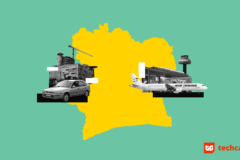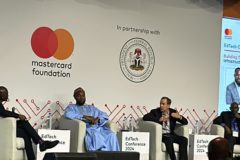Africa may trail the US and Europe in terms of technology, but the gap is closing fast. It seems our economic woes have inspired us to harness certain technologies with more zeal and in more innovative ways. Yup, when necessity said she mothered invention, she wasn’t lying.
For example, mobile banking has enabled the small business merchant do business in ways they could only dream of during the days of cutthroat loans and complex credit facilities. Another example is in the area of backup electricity generation, which I’ll wager we’re ahead of the pack. Who needs nuclear, right? Yes, it’s a small victory but if power fails at our own Super bowl, the ‘inverters’ will keep the lights on while we switch on the ‘big gen’.
Moving on, one area where technology can swiftly bridge the gap is in data analytics. Data analytics, often coupled with the term “predictive modelling”, is the rapidly growing discipline of using data gathered in the past to predict what will happen in the future. It is as crazy as it sounds, yet a science. It is how Netflix suggests interesting TV shows or how Target knew a teen girl was pregnant before her father did. .
The Economist reports Cyber security, Cloud analytics and Data analytics – which all have a symbiotic relationship – as three top tech trends for 2015. These are interesting times indeed. Due to increased investments in the three areas, barriers to accessing big-data and analytics have fallen drastically. Literally anyone with an internet connection can have a supercomputer running a thousand miles away, doing their bidding, round the clock. Many African IT companies provide their services this way and it’s smart. One can now tap into the cloud and big-data without factoring power cuts, black-market diesel or expensive internet plans into their expenditure.Predictive modelling techniques are employed in farming, manufacturing, finance, warfare and oil exploration, to name a few and there is plenty of untapped potential for this in Africa.
Farmers can be encouraged to subscribe to analytics – or precision agriculture. IBM’s research into precision agriculture accurately highlights the importance of making smarter decisions regarding planting, fertilizing and harvesting crops; pointing out that 90% of crop losses are due to bad weather. While it might not be as easy as taking your clothes off the line before the rains, knowing weather patterns helps farmers make decisions before a single seed hits the dirt.
Knowing in advance the risk created by adverse weather, farmers are better able to access insurance and in turn, loans from the bank. This is already being done in Kenya with the Kilimo Salama crop insurance scheme. That’s a whole ecosystem revived.
Retailers such as Konga or Jumia could gain valuable insights into the lives of thousands of customers at their doorstep. Proper customer segmentation through analytics can easily provide a platform to tackle this. Marketing would be more accurate as packaging and offers would be tailored to individual tastes and peculiarities.
Big data and analytics presents the African continent with lots of questions. And exciting possibilities. Can predictive models discern between clean and fraudulent mobile money transactions? With that kind of accuracy, we could see an open market and an upsurge in mobile money services. Which would lead to a more secure, robust industry.
Big-Data and Analytics may not be the magic wand to these problems but an awareness of the benefits of analytics and technical expertise will create tangible value for businesses, industry and the local economy.
Editor’s Note: Koye Sodipo is an engineer and general technology enthusiast. He enjoys making things make sense, occasional reading and interesting conversations. Connect with him on linkedin.





















